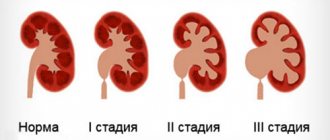According to statistics, cystitis develops more often in women. Inflammations in the mucous membrane of the bladder are formed due to the structural features of the body - the urethra is much wider and shorter, which means that ascending infections enter them faster. Almost half of the female population of the planet has suffered from cystitis at least once in their lives. Moreover, in many cases, the cause was not a weakened immune system, but improper use of personal hygiene products and lack of constant monitoring by a gynecologist.
In our clinic, special attention is paid to the diagnosis and treatment of cystitis. The extensive experience of gynecologists and urologists in this area has made it possible to compile a comprehensive and effective list of procedures for the treatment, including acute forms of the disease. Do you have complaints that fit the description of the symptoms of cystitis? Our specialists will meet at a time convenient for you from 9.00 to 21.00 at 6 addresses in Moscow.
Why is cystitis more common in women than in men?
The main reason is the peculiarities of the physiological structure of the genitourinary system. The penetration of pathogenic microorganisms into the urethra and bladder is ensured by:
- short, wide urethra located close to the anus;
- the influence of hormonal changes on the weakening of the body’s protective functions;
- menopause, which causes a decrease in estrogen levels, weakening of the mucous membrane of the bladder (its atrophy);
- the complex structure of the female reproductive system, which contributes to the rapid spread of infections and bacteria into the urinary system and the development of cystitis.
Why does cystitis develop during pregnancy?
According to statistics, every 10th pregnant woman experiences signs of cystitis. During pregnancy, the risk of inflammatory processes actually increases. Among the reasons:
- decreased general immunity;
- changes in hormonal levels;
- enlarged uterus;
- deterioration of the blood supply to the bladder and loss of tone of its mucous membrane (stagnation processes occur and the proliferation of infectious agents).
However, not all of the features of the female body that we have described can lead to the development of cystitis. You can suspect you have the disease if you have the following symptoms:
- strong frequent urge to urinate;
- discomfort in the pelvis, pubis, lower abdomen;
- burning in the urethra when urinating;
- general malaise, intoxication of the body.
In this case, the urine darkens, sediment, clots of pus, and blood can form in it. Patients may complain of back pain, fever and vomiting.
We do not recommend self-medication, even if you are sure that you have the disease, because... encountered him before. For each form of cystitis, the doctor selects individual therapy. Learn more about how the disease is classified.
Symptoms, causes of cystitis
10.09.2019
Cystitis is the most common disease of the urinary system, especially in women of childbearing age. It can be divided into bacterial, aseptic and tuberculous. Cystitis is often accompanied by urethritis , which is collectively called a lower urinary tract infection.
Symptoms of cystitis
Patients with severe conditions take a long time to treat and are prone to relapses.
1. Acute cystitis.
It often occurs suddenly, and when urinating , patients experience symptoms such as frequent urination , pain, and even urinary incontinence . frequency of urination can reach 5-6 times per hour. Each time the volume of urine is insufficient, and after urination there is pain in the lower abdomen . The color of the urine is not as clear and bright as usual. Hematuria often occurs at the end of urination .
The bladder feels tender, and some patients experience symptoms of low back . If inflammation occurs only in the bladder , then the symptoms are mild, temperature and leukocytosis are rare.
2. Chronic cystitis.
Frequency of urination and pain are typical symptoms of a patient with chronic cystitis . However, they are not as severe as with acute cystitis . Red blood cells and purulent cells may be present in a urine .
After treatment, the symptoms of acute cystitis disappear quickly, but their elimination does not mean recovery. Patients must follow diet and treatment until the disease disappears completely.
What can cause cystitis?
- Bacteria and fungi.
- Eczema.
- Bad habits.
- Pathological changes in the bladder .
What can you eat?
It is necessary to treat the disease as soon as possible after symptoms appear. Otherwise it will be very difficult to do.
- Diuretic food. Patients with cystitis need to urinate more to flush bacteria out of the body to facilitate recovery. Cucumber, lettuce, and watermelon can promote diuresis in patients.
- Protein food. Eggs are rich in protein and contain many other nutrients. They are the best choice for nutrition. Patients with cystitis can eat 1 or 2 eggs per day.
- Vitamins and minerals. Patients with cystitis should take vitamins and minerals daily to boost immunity and speed up recovery. Various fruits and vegetables are rich in vitamins and minerals, so you should add adequate amounts of these foods between two meals a day.
Treatment
Cystitis is an inflammation caused mainly by bacteria, so antibiotics are often used. For patients with bladder surgery may be preferable . If they want to recover quickly after surgery , they can take diuretic and anti-inflammatory tablets, but only as prescribed by a doctor . The effect of body cleansing and detoxification can effectively eliminate bladder . A diuretic and anti-inflammatory agent has a good effect on the destruction of bacteria, viruses, mycoplasmas, chlamydia and other pathogenic microorganisms that cause inflammation, relieving pain and discomfort in patients.
People who suffer from mild cystitis can be cured by urinating by drinking more water. If mild symptoms cause bladder , it is necessary to take antispasmodic medications to eliminate the symptoms of cystitis . Patients need to rest more, eat a balanced diet and maintain a sleep schedule.
Published in Urological diseases Premium Clinic
Acute cystitis in women
The primary diagnosis of cystitis includes a doctor’s examination and tests. Based on the examination results, it is possible to identify what form the disease is in: catarrhal, hemorrhagic or ulcerative.
- The catarrhal form is characterized by damage to the upper layers of the mucous membrane of the bladder. Swelling and hyperemia are formed.
- The acute hemorrhagic form causes inflammation of the blood vessels and is accompanied by the penetration of blood into the urine.
- The ulcerative form is characterized by the penetration of inflammation into the muscle tissue of organs.
Important! Symptoms of acute cystitis include severe pain and burning during urination, intoxication, increased body temperature, as well as purulent discharge and blood in the urine.
Cystitis
Most often, women are affected by the disease, this is due to the anatomical features of the female body: the urethra in women is short and wide, and therefore the infection enters the bladder much more easily than in men.
Causes of the disease:
Infectious cystitis is most often caused by E. coli, less often by chlamydia, ureaplasma and Candida fungi. The causes of cystitis can also be: poor circulation in the wall of the bladder and pelvis (for example, during prolonged sitting), frequent and prolonged constipation, wearing tight clothes, tights, or tight underwear for a long time; decreased immunity; this can happen if you eat very spicy or overcooked food; menopause, diseases associated with metabolic disorders; diabetes.
Symptoms:
Acute cystitis is characterized by frequent urination, with acute pain in the bladder and perineum, and possible bleeding at the end of urination. The more pronounced the inflammatory process, the more frequent the urge to urinate and the more acute the pain. In severe forms of acute cystitis, a person may urinate every 15-20 minutes day and night. Body temperature may rise, nausea and vomiting may occur. In chronic cystitis, the symptoms are similar, but less pronounced, which can be characterized by frequent exacerbations of the type of acute cystitis. Some symptoms of cystitis are similar to those of tuberculosis of the bladder or kidneys, with tumors of the prostate gland and bladder. Pain in the lumbar region may be a sign of a kidney infection. In men, phimosis and ureteral orifice abnormalities such as stenosis must be excluded.
Diagnostics:
At the first suspicion of cystitis, you should immediately consult a urologist or obstetrician-gynecologist. The doctor will prescribe the necessary tests for an accurate diagnosis of the disease, incl. may prescribe special tests, such as: PCR analysis for infections or take a urine test for bacteriological culture. In some cases, a doctor may prescribe a cystoscopy (examination of the inner surface of the bladder using a cystoscope) to determine the cause of cystitis.
Treatment:
You cannot treat cystitis on your own, because... Cystitis can become a chronic process, which will then have to be treated for the rest of your life. If the cause of the disease turns out to be a chronic infection, then the treatment of infectious cystitis will give a short-term result; the doctor will definitely prescribe drugs to treat the genital tract infection.
Prevention:
To prevent cystitis, it is necessary to maintain a drinking regime, prevent sexually transmitted infections, and avoid hypothermia. To strengthen the immune system, you can take courses of vitamin therapy and physiotherapy. Our medical office sees urologists, obstetricians-gynecologists and physiotherapists who will definitely help you understand the current situation and provide assistance.








